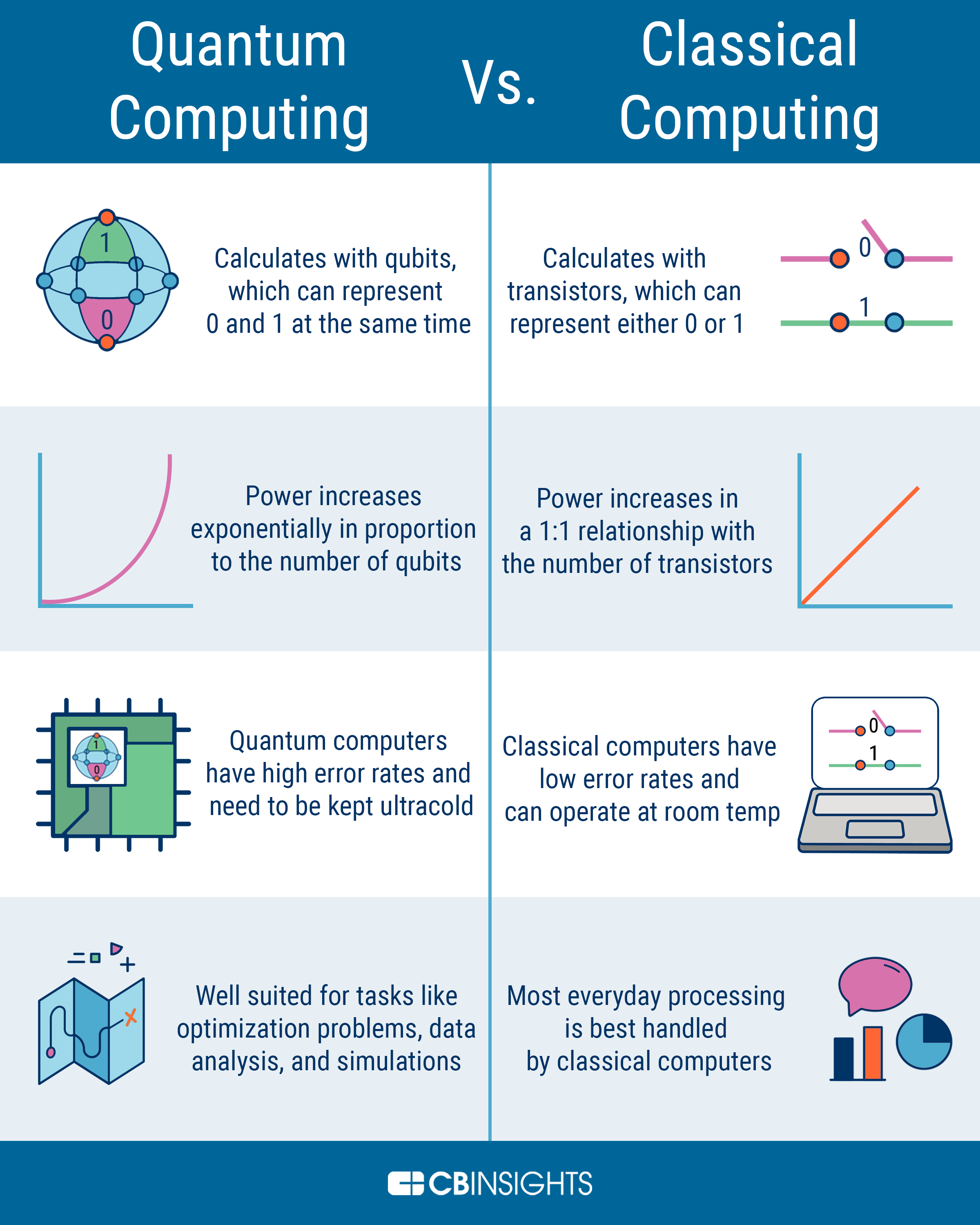What is Quantum Computing?

What is Quantum Computing?
Quantum computing is a technology that leverages the strange and powerful principles of quantum mechanics to process information. Unlike classical computers, which use bits to store data as zeros or ones, quantum computers use quantum bits, or qubits. Qubits can exist in multiple states at once, thanks to a phenomenon called superposition. This allows quantum computers to process enormous amounts of data at lightning speeds.
In recent years, quantum computing has moved from theory to reality. Major tech companies and governments are investing billions to develop practical quantum systems. These computers hold the promise of solving complex problems in seconds that would take classical computers thousands of years. But how does this new technology work, and what could it mean for the future? Let’s explore.
How Does Quantum Computing Work?
To understand it, you first need to understand two essential quantum concepts: superposition and entanglement.
- Superposition – In the quantum world, particles like electrons or photons can exist in multiple states simultaneously. This is superposition. Classical bits are binary, meaning they represent only one state at a time—0 or 1. Qubits, however, can be both 0 and 1 at the same time. This gives quantum computers a unique advantage, as they can handle multiple calculations at once.
- Entanglement – Quantum entanglement links particles in such a way that the state of one instantly affects the state of the other, even if they are far apart. In a quantum computer, qubits become entangled, allowing them to work together in a synchronized manner. This further boosts the computational power of quantum systems.
With these properties, a quantum computer can explore many solutions to a problem at once. This makes it far more powerful than classical computers for specific tasks.

Why is Quantum Computing Important?
Quantum computing promises to revolutionize several fields by solving complex problems that are beyond the reach of classical computers. Here are a few areas where it could have a profound impact:
- Cryptography – Modern cryptography relies on the difficulty of factoring large numbers, which classical computers struggle with. Quantum computers, however, could easily break these codes, making current encryption methods obsolete. This has massive implications for data security, banking, and military systems.
- Drug Discovery – Discovering new drugs requires simulating the interactions between various molecules, which is a very resource-intensive process. Quantum computers could perform these simulations rapidly, significantly speeding up drug discovery and enabling personalized medicine.
- Climate Modeling – Climate science relies on highly complex models to predict future scenarios. Quantum computing could help improve the accuracy and speed of these models, giving scientists better tools to understand and combat climate change.
- Optimization Problems – Many industries face optimization challenges, such as logistics, finance, and transportation. Quantum computers could help find the most efficient solutions by quickly testing many possibilities, improving efficiency and reducing costs.
- Artificial Intelligence (AI) – Itcould boost AI by accelerating machine learning algorithms, leading to smarter, faster AI systems. This could benefit many sectors, including healthcare, finance, and retail.
Challenges of Quantum Computing
Quantum computing is not without its challenges. Building a stable quantum computer is extremely difficult due to several factors:
- Decoherence – Quantum states are fragile and can easily be disrupted by their environment. Even a small disturbance can cause a qubit to lose its quantum state, leading to errors. This is called decoherence, and it’s one of the biggest challenges in quantum computing.
- Error Rates – Unlike classical computers, quantum computers are prone to high error rates due to decoherence and interference. Scientists are working on quantum error correction methods, but it’s an ongoing challenge.
- Temperature Sensitivity – Quantum computers require extremely low temperatures, often near absolute zero, to maintain their quantum state. This makes them expensive and difficult to maintain.
- Scalability – Creating a large-scale quantum computer with many qubits is challenging. Most current quantum computers only have a few dozen qubits, and scaling up is a massive technical hurdle.
These challenges mean that we are still in the early stages of quantum computing development. However, progress is being made, and the technology is advancing rapidly.
Quantum Computing vs. Classical Computing
Quantum computers will not replace classical computers for every task. Classical computers are highly efficient at handling everyday calculations, like running software applications and browsing the internet. Quantum computers, on the other hand, are ideal for specific types of problems that involve massive data sets and complex calculations.
For instance, a classical computer might struggle to analyze the millions of possible routes for a delivery truck, but a quantum computer could evaluate all options simultaneously. This is why quantum computing is often seen as complementary to classical computing rather than a direct replacement.

Major Players
Several tech giants are racing to develop practical quantum computers, including:
- IBM – IBM’s Quantum Experience allows researchers and developers to experiment with quantum algorithms on their cloud-accessible quantum computers.
- Google – Google’s quantum research team achieved “quantum supremacy” in 2019 with their quantum computer, Sycamore, by solving a problem faster than the world’s fastest supercomputer.
- Microsoft – Microsoft is developing a topological quantum computer, a different approach that promises improved stability and error resistance.
- Amazon – Amazon offers cloud-based quantum computing services through Amazon Braket, allowing businesses and researchers to test and run quantum algorithms.
- Rigetti Computing – A smaller but pioneering company, Rigetti offers cloud-based quantum computing and is a leader in hybrid quantum-classical computing.
The Future of Quantum Computing
Quantum computing is still in its infancy, but its potential is enormous. In the next few years, we may see the development of fault-tolerant quantum computers that can perform complex calculations reliably. Here’s what the future may hold:
- Advances in Error Correction – Quantum error correction is a crucial area of research. Improved methods could make quantum computers more stable and reliable, bringing us closer to practical applications.
- New Quantum Algorithms – As quantum computing advances, researchers are developing new algorithms tailored to its unique capabilities. These algorithms could unlock new possibilities for fields like cryptography, artificial intelligence, and materials science.
- Quantum Internet – In the future, we may see the development of a quantum internet. This network would use quantum entanglement for ultra-secure communication, which could revolutionize data privacy and secure communication.
- Collaboration with AI – Quantum computing and AI are likely to evolve together. Quantum-powered AI could solve complex problems in minutes that currently take days or even years.
- Mainstream Adoption – Though quantum computing remains expensive and complex, advances could make it more accessible. Eventually, industries like healthcare, finance, and logistics may incorporate quantum computing into their operations.
Final Thoughts
Quantum computing is a revolutionary technology with the potential to change our world. From cracking complex encryption to discovering new drugs and solving climate challenges, its applications are vast. Yet, we are still at the beginning of this journey, facing significant technical and practical challenges. But as investments in research continue, we can expect quantum computing to mature and find its place alongside classical computing.
In a world increasingly driven by data, quantum computing could be the next big leap. While there is still a long way to go, the future looks promising. With ongoing research, development, and collaboration among tech giants and scientists, quantum computing may soon become a cornerstone of our technological landscape.




